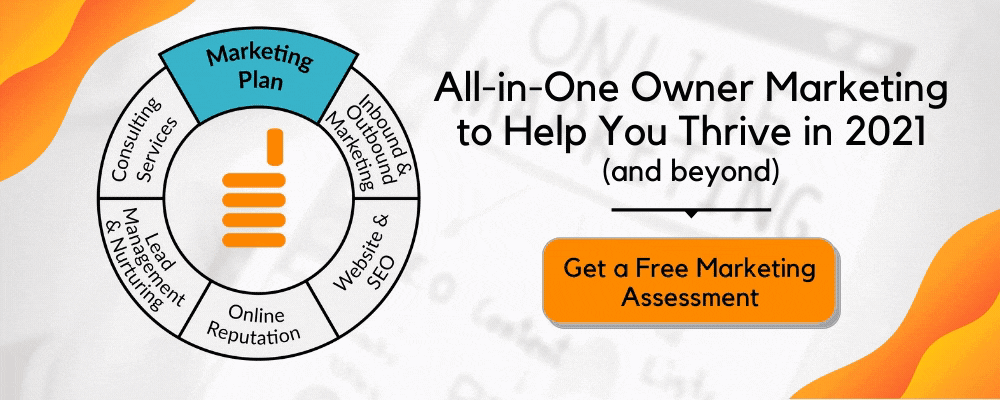Podcast: Play in new window | Download
Summary:
You may recognize today’s guest on The Property Management Show podcast. Steve Crossland is joining us, and he gave a speech at PM Grow Summit 2021 about the ABCs of property selection and portfolio selection. (by the way – if you’d like to watch that talk, and the rest of the recorded content from PM Grow 2021, head over to 2021.pmgrowsummit.com)
Today, he’s talking about the practices, mindsets, and habits that property managers should have to ensure their business is profitable.
Key Takeaways:
- Property management profitability is a mindset and a practice, you can cultivate as a property manager
- Profitability practice starts with knowing your Financial Freedom Finish Line
- Stick to your practice, trust in the strategy you’ve laid out to get to your goal, and live within your means as your wealth grows over time
- Steve’s profitability practice is to limit owner decision-making in order to provide better service to his tenants
Property Management Profitability as a Practice
 Property management profitability is more of a practice than an end result. It’s similar to nutrition in that it has to be part of your day-to-day lifestyle and mindset. We asked Steve to speak about what profitability as a practice means for the property management industry.
Property management profitability is more of a practice than an end result. It’s similar to nutrition in that it has to be part of your day-to-day lifestyle and mindset. We asked Steve to speak about what profitability as a practice means for the property management industry.
It starts with a personal financial goal.
Ask yourself where you want to be in five years, 10 years, or 20 years. At what point do you want to cross what Steve calls the Financial Freedom Finish Line?
The Financial Freedom Finish Line is the point at which you have enough assets and money and rental income to quit working forever and not run out of money. It’s the point where your wealth produces the income you need to live.
Everyone should start with that.
You’re starting with the end in mind, and that’s often a big jump for people.
But, if you’re 25 years old and you know you want to retire at the age of 55, with a net worth of $3 million in today’s dollars, you’ll have to do some math. Compute out into time with inflation what that number needs to be when you’re 55 (or whatever age you pick). Work backwards to figure out how much you have today and how much you have to add each year so that when you do reach the finish line, you’ve done what you set out to do on your financial journey.
That’s where you start.
For Steve, the practice of building wealth is just doing some numbers. It doesn’t have to be complicated. In fact, he first wrote those numbers out for himself on the back of a napkin.
This strategy has informed his property management business. It’s why he never wanted to be a 2,000-door company or a 1,000-door company or even a 500-door company. At 100 doors, he got what he needed to be on that path he had set for himself.
If you’re feeling a financial bottleneck that’s preventing your company from becoming profitable, check out our episode with Daniel Craig about Bottlenecks to Property Management Profitability.
Establishing an Ideology of Profitability
 Steve remembers listening to a finance guy on AM radio every Saturday when he was younger and driving around, and he absorbed a lot of what the expert said. Steve doesn’t remember who it was, but there was one thing in particular that stuck out. The finance expert said never borrow money to purchase a depreciating asset.
Steve remembers listening to a finance guy on AM radio every Saturday when he was younger and driving around, and he absorbed a lot of what the expert said. Steve doesn’t remember who it was, but there was one thing in particular that stuck out. The finance expert said never borrow money to purchase a depreciating asset.
That idea essentially means: it’s a bad idea to borrow money for things like furniture and cars. If you can help it, those things should be paid for in cash. It’s okay to borrow money for things that increase in value, however, namely real estate.
Steve moved forward with this philosophy and never bought a car that wasn’t at least 10 years old and affordable with a cash payment. If you adopt a belief or a principle that informs how you’re going to handle your money, and then you start doing it without breaking your own rules, you’re going to create an ideology for yourself that helps you achieve your property management profitability goals.
A big mistake Steve sees a lot in real estate is people increasing their lifestyle as they increase their income. He never did that. His happiness came from seeing the progress of the wealth he was building over time. You have to be patient because the growth is slow.
Steven never questioned that he could be prosperous and happy. Financial independence simply required a roadmap and a commitment to the property management profitability practice he had laid out for himself.
You can compare this to eating right. There’s no magic bullet or big secret. You know what you have to do to be healthy. The problem is in the execution.
The Gap Between the Practice and the Action
 When it comes to making your property management business profitable, sometimes you have to reconcile what you know you should do (the practice) with what you’re actually doing (the action).
When it comes to making your property management business profitable, sometimes you have to reconcile what you know you should do (the practice) with what you’re actually doing (the action).
That can be a struggle. We know what’s good for us, but it’s easy to sabotage ourselves by acting differently. How can property managers work through that?
Steve says we all have to look for whatever it is that lights our fire and motivates us. What gives you those small moments of delight?
It’s going to be different for everyone, but Steve finds delight in simplicity. He references a TedTalk that’s called The Paradox of Choice. The takeaway of that talk is that the more choices we have in life, the less happy we are.
Here’s how that translates into real estate:
Austin, TX is a strong seller’s market, just like many cities across the country. If you list a house today for $695,000, there will likely be 20 to 40 offers on that house, and it will likely sell for $800,000 or more.
The buyer who gets that house will have paid more than it’s worth, but he or she will be a happier buyer than the one who bought a home below market in 2010 when the market was dead and there were hundreds of homes to choose from.
Why? Because when you have a lot of choices, you’re always not getting something.
A buyer with a lot of choices may be paying less, but by acquiring one choice, a lot of other choices are given up.
This may sound silly, but it has merit. Pay attention to what makes you happy and why.
Steve likes minimalism. He likes straight, uncomplicated decisions. He ran his property management business that way because it aligned with his happiness.
Since he only managed a certain kind of property in a certain kind of neighborhood, his tenants were fairly homogenous. Owners accepted that they had to be hands-off if they were going to work with him.
Simplicity. Personal happiness was transferred into business happiness.
Attracting Owners that Make You Happy
 Steve didn’t want to work with any owners who insisted on playing a major part in the decision-making and management of their properties. So, in order to attract owners that aligned with his property management profitability practice, he communicated his practice using stories that supported his values.
Steve didn’t want to work with any owners who insisted on playing a major part in the decision-making and management of their properties. So, in order to attract owners that aligned with his property management profitability practice, he communicated his practice using stories that supported his values.
One of his clients was a young couple who were hoping to rent out the home they owned while they moved to Seattle. In Seattle, they planned to rent a home instead of buying one.
Steve asked them to think about what would happen if they were in their rental property and the heat went out. Would they want to wait five days to have that heat repaired while their property manager went back and forth with the property owner, collecting bids and getting permission to do the work? Or would they want the heat fixed right away?
They agreed that the heat should be fixed right away. Steve told them that’s the service he provides. This is a good example of how property managers can translate their profitability practice into collecting more of the types of owner clients they want.
When Steve came across owners who wanted to be involved and make even the smallest decisions, he wouldn’t take on the property. It was easy to say no. These types of owners didn’t fit with his profitability practice. There are other property managers who allow their owners to be more involved, and they’re better suited to owners who are looking for that.
The discipline (or the practice, if you will) was in describing the scenario so the owners understood why he worked the way he did. It allowed him to choose only the owners and properties that were aligned with that business model.
If you’d like to hear more about how to attract more of your ideal client, check out our blog on property management marketing ideas to get the right owner leads.
The Fear of Losing Owner Leads
If you’re a property manager who is reading this, you may feel some anxiety about losing potential owners.
But, if you know your numbers and your Financial Freedom Finish Line, and you know how many doors you need to manage to produce the income you need to stay on track, you don’t have to feel desperate for another door. Keep yourself at the right cruising altitude, and there shouldn’t be any anxiety about not having enough doors.
There’s a drumbeat in the property management industry that’s focused on growing, growing, and growing some more. You should know how many properties you want to manage. If you’re short and you need to add more, then growth is important. But, decide what’s non-negotiable in your practice and stick to it. You can grow your income and your wealth without increasing the number of bad doors you’re managing.
Never show up feeling desperate to win the account. That’s when you start making concessions to your own belief system and practice. You take properties you know you shouldn’t take. You work with home warranties when you know that impedes your business. For Steve, home warranties are deal breakers and out of alignment with his property management profitability practice.
If you’re trying to grow, there has to be a rational reason for it. If you don’t know how many more doors you want, you simply know that you want more doors, you’re not going to have a very focused strategy for your property management business.
You need an end goal, otherwise your plan is incomplete.
Profitability as a Practice: Changing the Way You Do Business
 Are you a property manager who feels their business suffers from owner over-involvement?
Are you a property manager who feels their business suffers from owner over-involvement?
Some people think that’s good service, but if you’ve trained and conditioned your owners to be in the loop on everything that happens, it can be too much information and result in poor service to your tenants. You’re creating more work for yourself.
If this feels true to your experience, the disadvantages are plain and clear. But there’s good news! You can adjust your current business practice with one letter. Send a letter to all your owners and say “Effective immediately, here’s how maintenance will be handled: For ordinary and expected repairs, there will be no notification or involvement, it will simply be taken care of. For larger and more expensive urgent repairs such as water heater replacements or air conditioning breakdowns, you’ll initiate what needs to be done immediately.” Let your owners know that you’ll communicate with them about the decisions you’re making, but there will no longer be any back and forth, in order to provide your tenants with the best possible service.
Send that letter out and hit the reset button.
Steve did this, sending that letter to 100 owners and none of them quit. It was, as he calls it, a big Nothing Burger.
Property managers often have a harder time with it than their owners. They’re scared, and that goes back to mindset. It’s easy to fall back into old patterns.
You have to practice doing the scary things.
The COVID pandemic creates an opportunity to make this change. People are really living in their homes like never before. They’re working from home and schooling kids from home. They really depend on the home to function and operate. That’s going to cause extra maintenance. Previously, they may have run the dishwasher twice a week. Now, with everyone home all day and no one going out to eat as much, the dishwasher might run twice a day. Even the thermostat is set differently.
For property managers, this means that a tenant who may have been okay with a three-day turnaround in the past might need a speedy fix otherwise it’s really a negative impact.
Service matters. It’s really important to give good service to your tenants. The most valuable asset you have in your rental property is a good landlord-tenant relationship. If you can get an owner to align with that, the owner will have no reason to be upset with your new way of working.
Re-Directing Owners to the Big Picture
 Re-directing owners to see the big picture can help you manage those conversations that might be difficult after a decision has been made that they weren’t expecting.
Re-directing owners to see the big picture can help you manage those conversations that might be difficult after a decision has been made that they weren’t expecting.
For example, you might have to replace an air conditioning unit for $6,800. That means the next month’s $1,800 in rent will be used to cover that invoice, and the owner will have to write a check for $5,000 to cover the balance.
Ouch.
But, always tell the owner the good news.
The good news is, since you sold that owner the property 10 years ago, it’s already doubled in value.
That gets the owner out of their scarcity mindset and shows them that their wealth is growing. It’s a big expense, but the property is doing well and money has already been earned.
This isn’t a deflection. It’s a method for keeping the owner focused on their own Financial Freedom Finish Line.
Owners who struggle with expenses haven’t been told the truth about what’s required in owning rental property.
Always ask a potential owner how they’re doing on money before you agree to manage their property. Ask if they have six months of rent sitting aside to cover vacancy. Find out if they have access to the cash they may need to make big repairs. If the owner doesn’t have the money that’s needed, start talking about other options. It might be better to sell the property.
You don’t want a client who is anxious about money.
It’s not serving an owner to promise that you’ll keep expenses down. There may be some very large expenses and if they don’t have the money to cover those, everyone is going to have a problem.
Keeping Your Property Management Profitability Practice on Track
 If you’re trying to eat better or exercise more, you likely have an app that you use to track your progress. Maybe you write down what you eat and how you move in a diary or a notebook.
If you’re trying to eat better or exercise more, you likely have an app that you use to track your progress. Maybe you write down what you eat and how you move in a diary or a notebook.
There’s no such system when it comes to managing properties for profitability, but everything starts with clarity. You may be managing unprofitable properties because you have no way of looking at how unprofitable they actually are.
Here’s what Steve suggests:
Create a spreadsheet with all the doors you manage. Put in your revenue from each door and give it an effort score. Maybe the A units get a 1 and a B unit gets a 2 and a C unit is a 3.
You’ll easily be able to compare the amount of money you’re earning as it relates to the effort you’re making.
When Steve did this, he immediately dumped 100 doors. If you’re spending 80 percent of your effort managing doors that only earn 17 percent of your income, you’re not managing for profitability.
This may be a Day of Reckoning. Hold yourself accountable.
Keep track of your conversion rate on your leads as well. How many of the people you talk to are ready to hire a property manager? What percentage are you converting? If it’s not 70 percent, start figuring out why.
You can get yourself to your Financial Freedom Finish Line once you know what it is. Then, you can:
- Send a letter to your owners letting them know you’ll be managing with less input going forward.
- Put all your units in a spreadsheet and decide which are profitable and which are not.
- Stop managing the unprofitable units.
This is a reliable way to increase your income and decrease your effort.
Property management is a hard business but it’s a great business. If you’re sharpening your saw and reducing your effort while your income goes up and you know your targets and unit counts, you’ll be more confident in what you need to do each day.
Steve loves talking about this, so contact him if you have any questions about increasing your own profitability. If you need help with property management marketing, you can always contact us at Fourandhalf.


